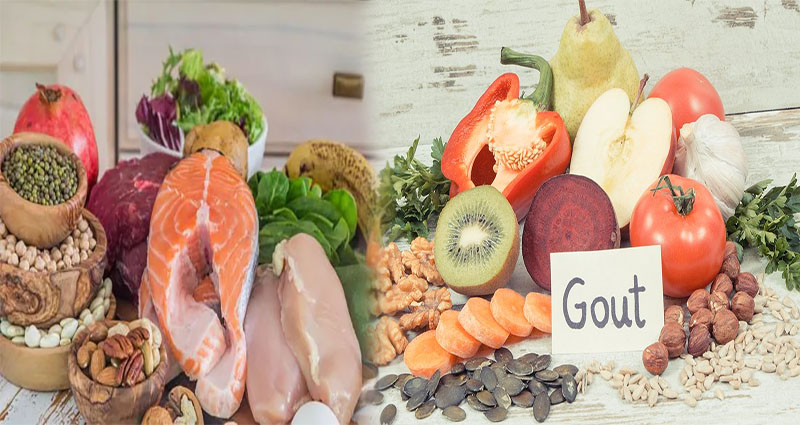If you have gout, a self-care diet can help you manage your risk of getting gout attacks. A gout self-care diet is a nutrition plan that helps you reduce your risk of getting gout pain. There are two parts to the diet: low purine foods and foods that trigger gout. The goal is to prevent uric acid from building up in the bloodstream, which can lead to an attack. Low-purine foods include fruits and vegetables, fish, poultry and other lean meats, eggs and low-fat dairy products. Foods that trigger gout include alcohol (especially beer), shellfish, organ meats and tart cherries
A gout self-care diet is a nutrition plan that helps you reduce your risk of getting gout pain.
A gout self-care diet is a nutrition plan that helps you reduce your risk of getting gout pain. Gout is caused by the buildup of uric acid in the body, which can cause crystals to form around joints and other areas of your body. A gout self-care diet has been shown to lower levels of uric acid, which may help prevent future attacks from occurring.
A healthy diet should include plenty of fruits, vegetables and whole grains; lean protein sources such as fish or chicken breast with skin removed; low-fat dairy products like skim milk; nuts/seeds (like almonds) which contain omega 3 fatty acids (they’re also high in potassium).
There are two parts to the diet: low purine foods and foods that trigger gout.
The diet is broken down into two parts: low purine foods and foods that trigger gout.
- Low purine foods are those that don’t have enough of the chemical to cause a flare-up. These include fruits, vegetables and dairy products.
- Foods that trigger gout are ones that contain high levels of uric acid and should be avoided by people who suffer from this condition. The list includes organ meats (like liver), shellfish (such as shrimp), red meat and alcohol consumption (especially beer).
The goal is to prevent uric acid from building up in the bloodstream, which can lead to an attack.
The goal of a gout self-care diet is to prevent uric acid from building up in the bloodstream. This can lead to an attack.
Uric acid is a natural substance that’s created when your body breaks down purines, which are found in many foods (especially organ meats and shellfish). If you eat too much high-purine food, you may have too much uric acid in your blood, which causes gout attacks.
Low-purine foods include fruits and vegetables, fish, poultry and other lean meats, eggs and low-fat dairy products.
Low-purine foods include fruits and vegetables, fish, poultry and other lean meats, eggs and low-fat dairy products. On the other hand high-purine foods are red meat (including beef steak), organ meats like liver or kidneys, sardines and anchovies.
- Avoid:
- Alcoholic beverages
- Beer
- Wine
- Liquor
Avoiding alcohol will help reduce uric acid levels in your body as alcohol contains purines which increase uric acid production when consumed in large amounts. Alcohol also has diuretic properties which can make you lose more fluids than normal causing dehydration which leads to further complications for sufferers of gout who already have an increased risk of developing kidney stones due to their condition
Foods that trigger gout include alcohol (especially beer), shellfish, organ meats and tart cherries.
If you suffer from gout, you may already be aware of the foods that trigger the condition. In general, these include alcohol (especially beer), shellfish, organ meats and tart cherries.
Gout is caused by high levels of uric acid in the blood stream. This leads to crystals forming in joints which causes inflammation and pain. Alcoholic beverages contain purines – chemical compounds that break down into uric acid when metabolized by the body – which can lead to an increase in uric acid levels if consumed excessively over time.
A gout self-care diet can help you manage your risk of getting gout attacks
A gout self-care diet can help you manage your risk of getting gout attacks. Gout is a type of arthritis that occurs when there is too much uric acid in the blood. This causes crystals to form around joints and other tissue, which leads to swelling, redness and pain. The good news is that with proper treatment (including following a gout diet), most people with gout can lead normal lives without experiencing any long-term effects from the disease.
The goal of following this special diet plan is to reduce uric acid levels so that they do not reach dangerous levels again in future months or years.
A gout self-care diet is one of the best ways to manage your risk of getting gout attacks. It’s also an important part of your overall health. If you have any questions about this diet or other ways to help prevent gout, talk with your doctor or nutritionist today!












